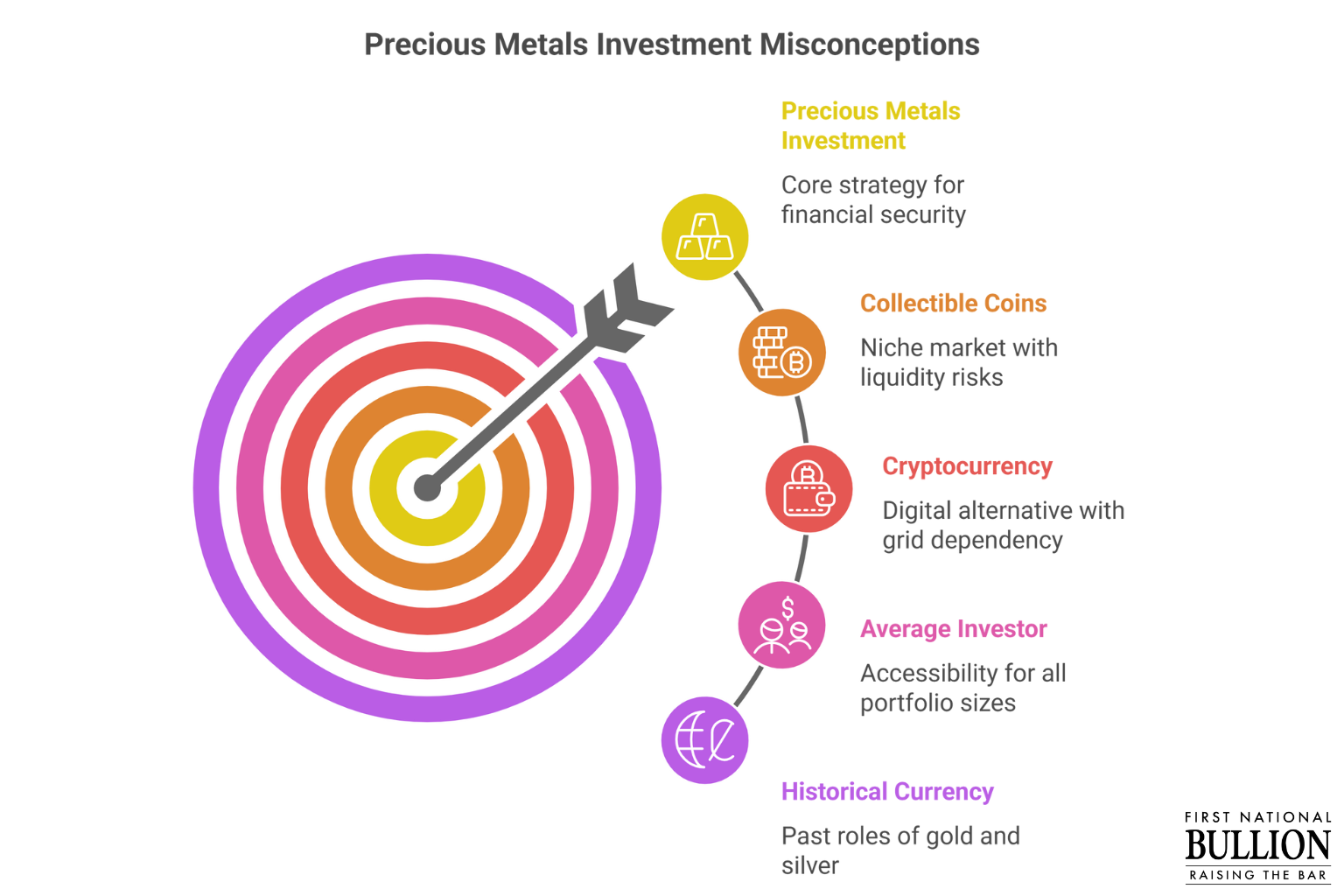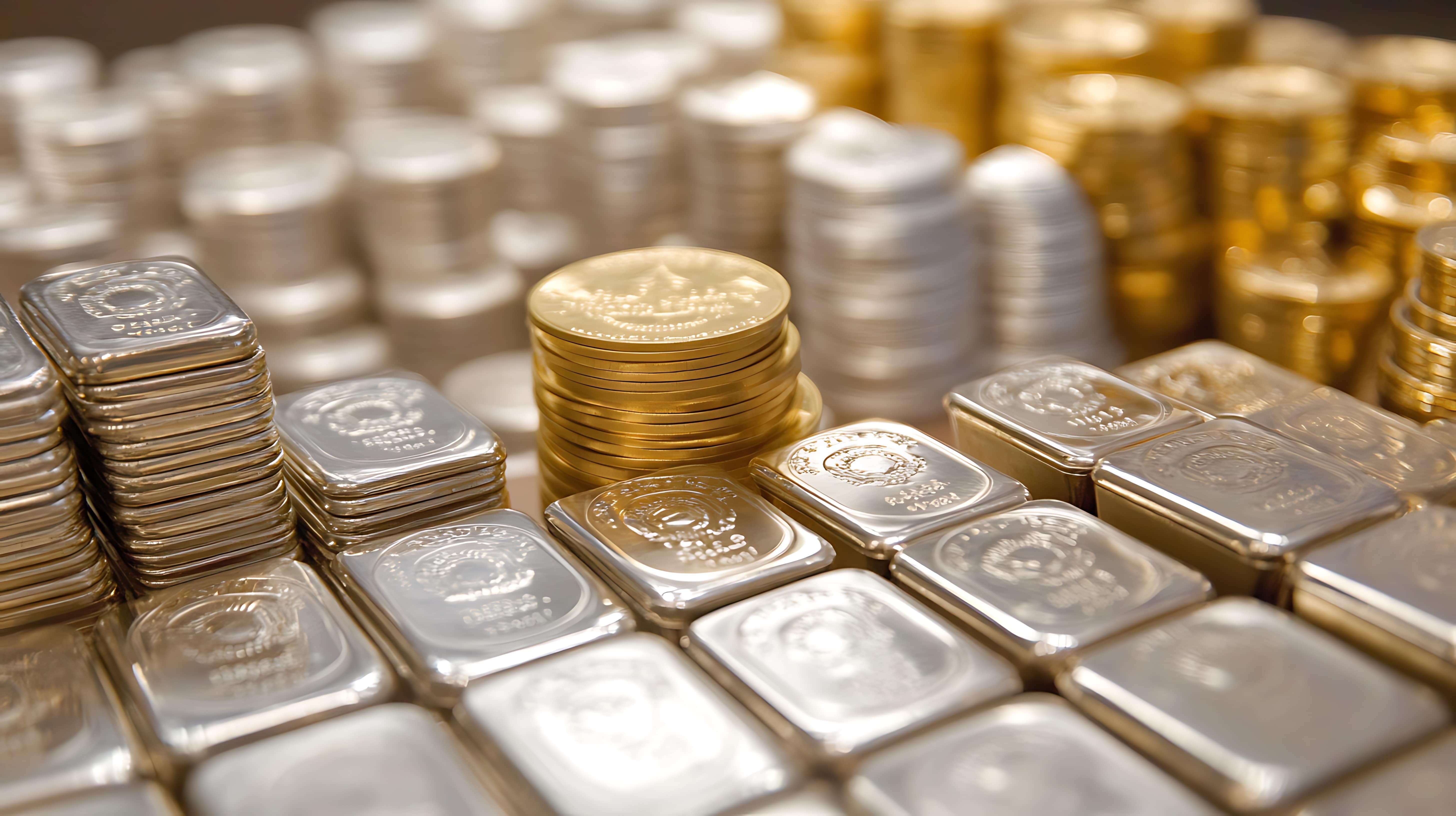Exposing 5 Lies about Precious Metals Investing
What Are 5 Untruths Precious Metals Investors Should Be Aware Of?
Investing in precious metals is a smart move. It’s a process that requires a solid understanding of common misconceptions about gold and silver or any other precious metals you may wish to include in your investment portfolio. Below, we go over five of the top mistruths about precious metals investing.
1. Gold Isn’t Money
Gold has a long history of being used for money. In fact, central banks around the world have been stockpiling gold as a reserve in case there are issues with fiat (paper) money. The United States used to back its currency with gold, referred to as the gold standard. While the U.S. is no longer on the gold standard, it’s still a precious metal many investors prefer to stock up on as a safety net.
2. Silver Isn’t Money
Silver has a long history similar to what’s common with gold. It was actually the basis for the U.S. dollar when the country first started. The Founding Fathers referred to the dollar in terms of grains of silver. For over a century, silver was the primary metal used for dimes, quarters, nickels, and half-dollars. Since 1964, these coins have had little or no silver. Instead, cheaper metals are used. Even so, silver is more likely to be the go-to currency if the dollar is no longer viable.
3. Precious Metals Aren’t for the Average Investor
Anyone can invest in precious metals. Prices are fair if you go by the spot price and do your homework first when choosing a dealer. You shouldn’t necessarily invest everything in gold and silver. However, it’s generally advised to allocate between 10 and 25 percent of an investment portfolio to precious metals. Whether they choose to buy gold bullion or platinum bars, Scottsdale investors can be reassured by the extensive history of precious metals being sensible long-term investments.
4. Cryptocurrency Is Better than Precious Metals
Bitcoin has been in the news in recent years. Some advocates of cryptocurrency claim it’s a smart investment choice that’s more reliable than gold and silver. The truth is digital currency is dependent on a working electric power grid. If the power goes out, digital currency is useless. Physical gold and silver are tangible and always useful and recognized around the world for their value. If Bitcoin fails, gold and silver will become the go-to currency if paper currency is equally useless or worthless. Gold and silver are also used for industrial purposes and jewelry making.
5. Collectible or Rare Coins Are a Better Choice than Bullion Coins
You may have seen ads online or on television talking about rare coins or special issue coins being a better investment than regular bullion coins. However, these coins are only appealing to certain investors. If you purchase them, you’ll likely have a difficult time selling them. If you prefer to invest in precious metals for the purpose of added peace of mind and as a backup for stocks, bonds, and paper currency, stick with traditional bullion. The prices are lower and the bid/ask spread is lower as well.
Whether you’re looking for expert advice on investing in precious metals or you want to buy gold bullion Scottsdale collectors can be sure is of the highest quality, work with trustworthy precious metal dealers who offer exceptional service and have years of experience. Call on the industry-leading professionals at First National Bullion when you’re ready to invest in precious metals, including gold, silver, platinum, and palladium. Give us a call today.
The statements made in this blog are opinions, and past performance is not indicative of future returns. Precious metals, like all investments, carry risk. Precious metals and coins may appreciate, depreciate, or stay the same in cash value depending on a variety of factors. First National Bullion does not guarantee, and its website and employees make no representation, that any metals for sale will appreciate sufficiently to earn the customers a profit. The decision to buy, sell, or borrow precious metals and which precious metals to purchase, borrow, or sell are made at the customer’s sole discretion.


